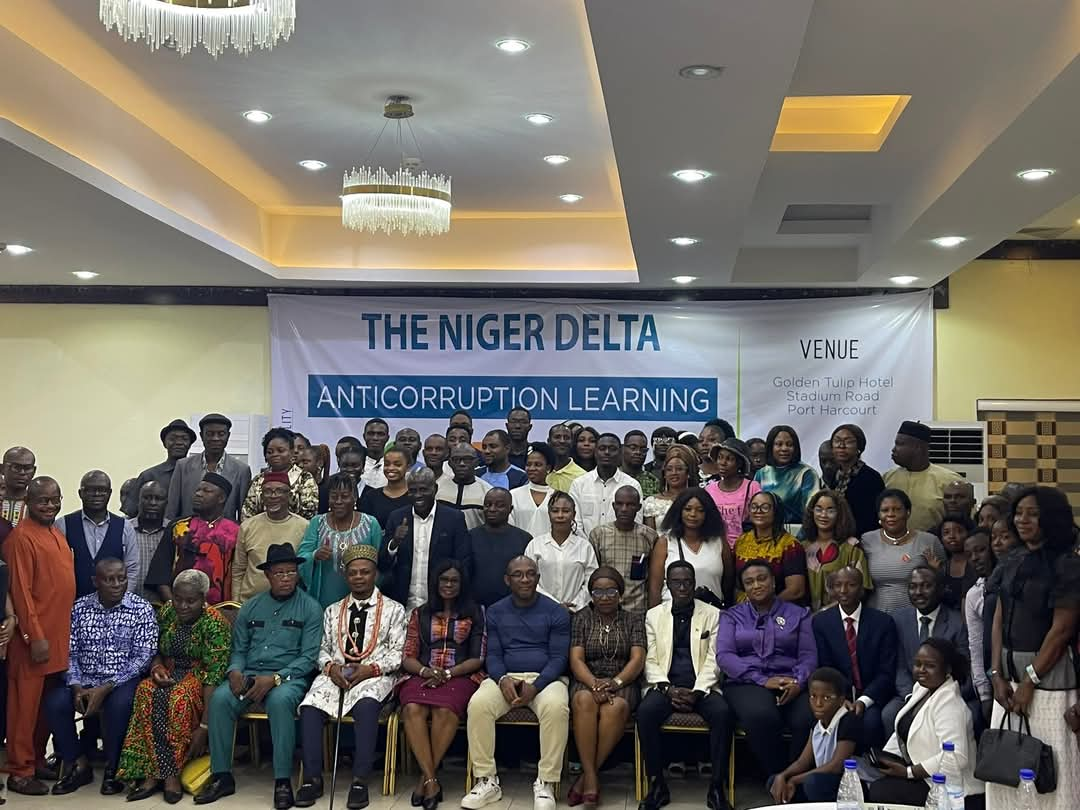Social Action, Stakeholders Make 14-Point Demands towards addressing corruption in Niger Delta Resource Management

By Ekemini Simon
Social Development Integrated centre (Social Action) together with stakeholders from the civil society organizations (CSOs), anti-corruption agencies, traditional rulers, community members and the media have put forth 14-point demands that must be attended to for the management of Niger Delta resources to be free from corruption.
At the Niger Delta Anti-corruption Learning Summit held in Port Harcourt, Rivers State on Tuesday by Social Development Integrated centre (Social Action) with the theme “Building Stakeholders’ Resilience for Sustained Accountability and Development in the Niger Delta.”, participants observed that corruption in the management of public resources in the Niger Delta is characterized by alarming trends that significantly undermine development and make worse poverty in the region.
They observed that corruption in the extractive industry has far-reaching consequences for host communities, undermining development and perpetuating cycles of poverty.
They said that infrastructural decay and social crisis in the Niger Delta range from polluted creeks to abandoned projects reflecting an unacceptable reality that Nigeria’s oil breadbasket (the Niger Delta) has been turned into an arena of neglect and despair.
In a Communique issued at the end of the summit, participants noted that for the resource curse of the Niger Delta to be addressed, there is need for all stakeholders to work towards the implementation of the 14 point resolution agreed at the summit.
The participants asked for the strengthening of accountability frameworks by establishing transparent procurement systems, enforcing audit compliance, and mandating public disclosure of project budgets and implementation status. They said this will be enhanced by adopting technology-driven platforms for real-time monitoring of constituency projects and NDDC initiatives.
The stakeholders called on Niger Delta citizens to reject corruption in governance and refuse state capture by urgently resolving the Rivers State governance crisis through constitutional means, ensuring restoration of elected leadership, judicial independence and advocate for legislation.
The stakeholders said there is a need to empower citizen action by strengthening communities to utilize Freedom of Information (FOI) laws, monitor projects, report corruption via whistleblower protections and launch grassroots campaigns to stigmatize corruption and celebrate ethical leadership.
They demanded INEC’s independence, biometric voter accreditation, and strict enforcement of electoral laws to curb vote-buying and violence through electoral justice reforms.
The participants recommended a regional anti-corruption action plan and regular citizen-led audit of state and local budgets.
Part of the communique reads “Government should strengthen public procurement reforms, embark on capacity-building for oversight agencies focusing on ICPC and the EFCC.
“Civil society organizations should lobby for the amendment of the constitution on the transmission of results after voting has been concluded and mandate timely, transparent audits with consequences for non-compliance.
“Ensure lawful enforcement of fines and sanctions to protect laws and policies being violated and empower independent media and CSOs to access public documents (via FOIA) and monitor governance.
“Mobilize citizens, NGOs, and businesses to hold duty-bearers accountable by using citizen media to raise awareness and bypass state-controlled media.
Empower the EFCC, ICPC and other agencies to investigate, and prosecute corrupt individuals, including political office holders.
“Engage and empower communities to be involved in policy discussions and decision-making processes.
“Strengthen partnerships between CSO’s, the media and accountability institutions to expose corruption and advocate for reforms. There should be joint advocacy campaigns across the Niger delta.
“Promote transparency in extractive contracts by ensuring all oil, gas, and mining contracts are publicly accessible. Voters Electronic accreditation should be reformed to make it more efficient.”







